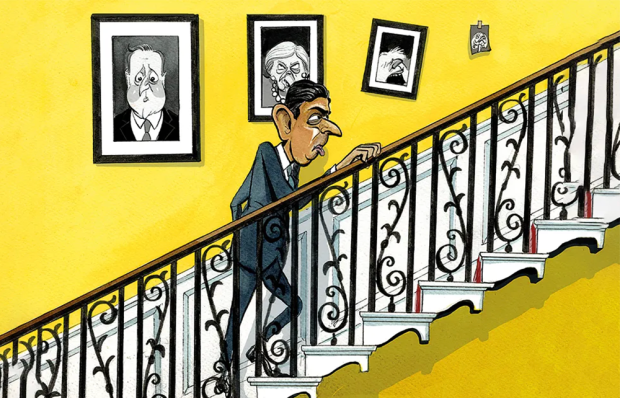Since at least the beginning of this century there has been a mood abroad – cultural as well as political – to trash the place that contributes most to British culture and the British economy. Without London and its population, we in the rest of the United Kingdom would be unable to continue living in the manner to which we have become accustomed and which we seem to consider our birthright. But suggest as much in the English provinces, the West Country, East Anglia, the Home Counties, Scotland, Wales or Northern Ireland, and people look at you as though you were mad – or, worse, secretly in the pay of the spivs and swindlers of Canary Wharf and the City of London.
When did you last hear a politician – Labour, Tory, Lib Dem or Scot Nat – singing the praises of our metropolis, celebrating the earnings the City pours into the Exchequer or testifying to the outstanding work ethic of Londoners rich and poor? When did you hear a culture secretary single London out for mention for its massive contribution to the arts, theatre, opera, classical music and the rock and pop scene? When has any health secretary ever pointed out that Londoners’ obesity rates are the lowest in the country because private car use in the metropolis is almost impossible? When, outside London, did you ever see anybody walking up a moving escalator?
I love Derbyshire, one of whose rural constituencies I represented in parliament for almost seven years. I consider rural England my home now, and my London flat the place to go when work requires it. I gnash my teeth, however, when I hear those whose home is in my adopted county casually denigrate their capital city as though it were commonly agreed that this is the Babylon of England. It would only be slightly a caricature to say that the general view across much of the rest of Britain is that London is a place of lah-di-dah people who spend most of their time at posh dinner parties; sickos and perverts; beggars and good-for-nothings; greedy financial moguls who sit round creaming their wealth off fat balance sheets and who wouldn’t recognise a spade, let alone call it one, if they saw it; welfare scroungers; and – aargh – foreigners. ‘Went there once,’ said someone I know in the Midlands, ‘on a coach. I think it were called Reading. Didn’t think much to it so I came home.’
Of course I overstate, so let’s instead talk relativities. Millions outside the capital (I’ll wager) would subscribe to the following statement: ‘In provincial towns, cities and the countryside, people are more likely to do an honest day’s work, live cleaner, healthier lives, be more “down to earth” than Londoners and contribute more to national prosperity and what makes this country great.’ Pick that statement up and examine it.
Take my own county, and imagine Derbyshire were an independent country with its own domestic economy. Let’s call this nation Derbytania. We in Derbytania have only two big industries: Toyota, employing around 2,500, and Rolls-Royce plc (the aero-engines people). Or, rather, we don’t because when Rolls-Royce went bust in 1971 the government of Derbytania would not have been able to afford to bail it out. Westminster rescued Rolls-Royce. We have quarrying, too, so yes we export limestone. And we have farming.
Now, farming is many British people’s idea of a real, productive job. I admire farmers. They give us British the look and feel we associate with country living. But those working in agriculture are about 1 per cent of the British population and contribute about half a per cent of our GDP. Farmers do work hard. The life of a small livestock farmer in hill country (much of Derbytania’s agricultural sector) is tough and financially unrewarding. But it’s not just unrewarding for the farmer: it’s unrewarding for the national kitty. Most of Derbytania’s hills are covered in sheep. The farmers who own them have been reliant on the EU providing more than 40 per cent of their income in subsidy. Derbytania voted to leave the EU. If its farmers think all that money will now come from the ministry of finance in Derby, they’re under a misapprehension.
So what else do we do here in Derbytania? We’re teachers, we’re NHS workers and managers, and huge numbers of us work for the baffling range of layers of local government with which we’re blessed. And if we suppose these salaries are largely paid for out of our council tax, we’re wrong: as wrong as if we suppose that the £13.3 million that our charming and relatively well-to-do town of Ashbourne has just been awarded from Westminster’s ‘levelling-up’ fund (for a stone paving scheme) would ever have come from Derby. Some chance.
We’re not, generally, workshy. But it’s nine-to-five for most Derbytanians, and we mostly commute by car. Content to keep to our contracted hours, and looking forward to retirement, we don’t obsess about career like many Londoners. We recoil from stories of the homeless on London’s streets, forgetting that every town and village in Derbytania has its misfits, addicts and alcoholics, and most drift away – as often as not to London.
I like life here in Derbytania. I like my Derbytanian neighbours: nice people for the most part, sensible, honest and not shirkers. I like Dicky and Daffy Tottering in CountryLife’s ‘Tottering-by-Gently’ cartoon strip. But have we Derbytanians the least idea of the level of wealth transferral from the metropolis upon which we depend? And though Dicky and Daffy would tell you their roots are in their county, those roots are ultimately nourished from Canary Wharf and the City of London.
Provincial Britain thinks of itself as a solid citadel of industry and common sense, and of London and its fancy ways as the barbarians at the gates. Friends, we are subsidy junkies and the barbarians are paying the bill. God forbid that London should ever take back control.
Got something to add? Join the discussion and comment below.
Get 10 issues for just $10
Subscribe to The Spectator Australia today for the next 10 magazine issues, plus full online access, for just $10.
You might disagree with half of it, but you’ll enjoy reading all of it. Try your first month for free, then just $2 a week for the remainder of your first year.















Comments
Don't miss out
Join the conversation with other Spectator Australia readers. Subscribe to leave a comment.
SUBSCRIBEAlready a subscriber? Log in